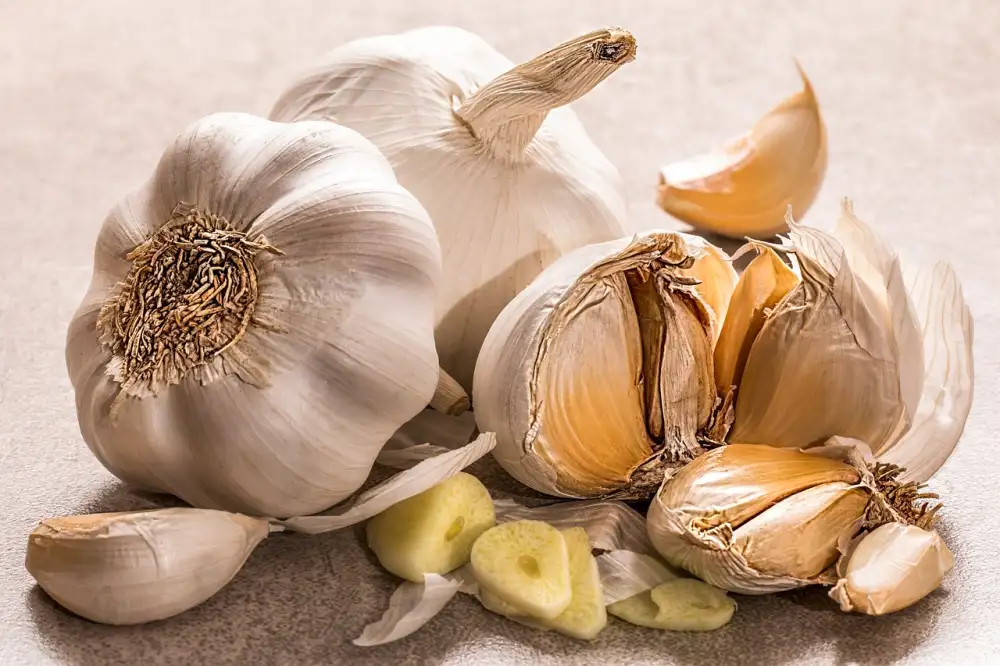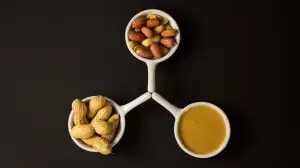Garlic 101: Discover the Shelf Life of this Flavorful Ingredient

Garlic, with its pungent aroma and distinct flavor, is a staple ingredient in kitchens around the world. But have you ever wondered how long this flavorful bulb can last? Understanding the shelf life of garlic is essential for ensuring that you're using it at its peak freshness. Whether you're a seasoned chef or an amateur cook, knowing how to properly store garlic can make all the difference in elevating your culinary creations. In this article, we will explore the factors that affect the shelf life of garlic and provide you with expert tips on extending its lifespan. So let's dive in and discover how to make the most of this versatile ingredient!
Factors affecting the shelf life of garlic
Factors affecting the shelf life of garlic include its freshness at the time of purchase, storage conditions, and exposure to moisture and light. Freshly harvested garlic will generally have a longer shelf life compared to older garlic. Proper storage techniques such as keeping garlic in a cool, dry place away from direct sunlight can help extend its lifespan. Additionally, excessive moisture can cause garlic to spoil quickly, so it is important to store it in a well-ventilated area.
Proper storage techniques for extending the lifespan of garlic
Proper storage techniques are crucial for extending the lifespan of garlic and ensuring its freshness. Here are some tips to help you maximize the shelf life of this flavorful ingredient:
1. Store in a cool, dark place: Garlic should be stored in a cool and dry environment, away from direct sunlight. A pantry or cupboard is an ideal spot.
2. Avoid moisture: Moisture can cause garlic to sprout or rot quickly. Make sure the garlic bulbs are completely dry before storing them.
3. Do not refrigerate whole bulbs: Refrigeration can cause garlic to become soft and lose its flavor. It is best to store whole bulbs at room temperature.
4. Use a breathable container: Instead of keeping garlic in plastic bags or airtight containers, opt for a mesh bag or a well-ventilated container that allows air circulation.
5. Separate cloves when using: If you only need a few cloves, separate them from the bulb just before use rather than breaking off the entire head. This will help preserve the remaining cloves.
By following these storage techniques, you can extend the lifespan of your garlic and ensure it stays fresh for longer periods, allowing you to enjoy its delicious flavor in your culinary creations.
Signs of spoilage in garlic
Signs of spoilage in garlic can be easily identified by paying attention to its appearance, texture, and smell. One of the first signs is the development of brown spots or patches on the cloves. These spots indicate that the garlic is starting to decay. Additionally, if the cloves become soft or mushy, it is a clear indication that the garlic has gone bad. Another sign of spoilage is a strong, unpleasant odor. While garlic naturally has a pungent smell, if it becomes overpowering or foul, it is best to discard it. Lastly, any signs of mold growth on the cloves should not be ignored as they indicate that the garlic is no longer safe for consumption. Always inspect your garlic before using it to ensure its freshness and quality.
Frequently asked questions about the shelf life of garlic
1. How long does garlic last?
Garlic can last for several months if stored properly. However, its shelf life can vary depending on various factors.
2. What factors affect the shelf life of garlic?
Exposure to moisture, temperature, and air can all impact the shelf life of garlic. Additionally, the freshness of the garlic at the time of purchase also plays a role.
3. Can I store garlic in the refrigerator?
Yes, you can store garlic in the refrigerator, but it's important to keep it in a well-ventilated container or bag to prevent moisture buildup.
4. Should I store garlic in oil?
Storing garlic in oil can be risky as it creates an environment for bacterial growth. It is recommended to use fresh garlic or commercially prepared products instead.
5. How do I know if my garlic has gone bad?
Spoiled garlic will have a strong odor, soft spots, and may even develop mold or green sprouts. Discard any garlic that shows these signs.
6. Can I freeze garlic to extend its shelf life?
Yes, freezing is a great way to extend the shelf life of garlic. Simply peel and mince the cloves before placing them in an airtight container or freezer bag.
7. Can I still use sprouted cloves of garlic?
While sprouted cloves are safe to eat, they may have a slightly bitter taste and less potent flavor compared to fresh cloves.
Remember that proper storage techniques and using fresh garlic will ensure you make the most out of its freshness and flavor!
In conclusion, understanding the shelf life of garlic is essential for maximizing its flavor and ensuring its quality in your culinary creations. By considering the factors that affect its lifespan and implementing proper storage techniques, you can extend the freshness of your garlic.
Remember to store garlic in a cool, dry place away from direct sunlight and moisture. Avoid refrigerating whole bulbs as it can lead to sprouting and loss of flavor. Instead, opt for storing individual cloves in an airtight container or bag.
Regularly check for signs of spoilage such as mold, soft spots, or an unpleasant odor. If any of these are present, it's best to discard the garlic to prevent any potential health risks.
By following these guidelines, you can make the most out of your garlic's freshness and enhance the flavors of your dishes. So go ahead, stock up on this flavorful ingredient and elevate your food game today!
Published: 02. 12. 2023
Category: Food



